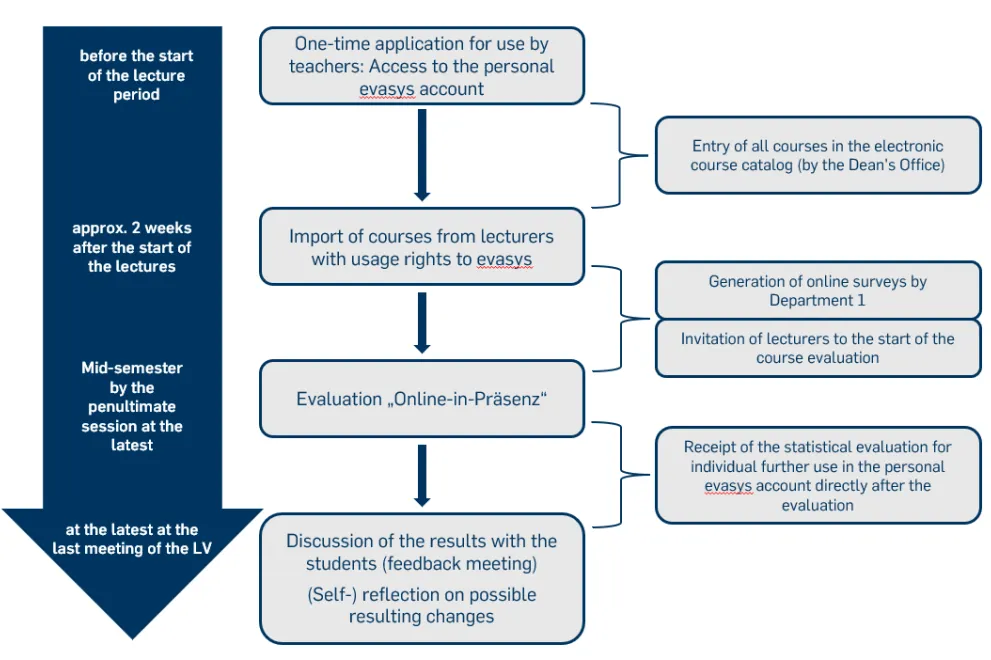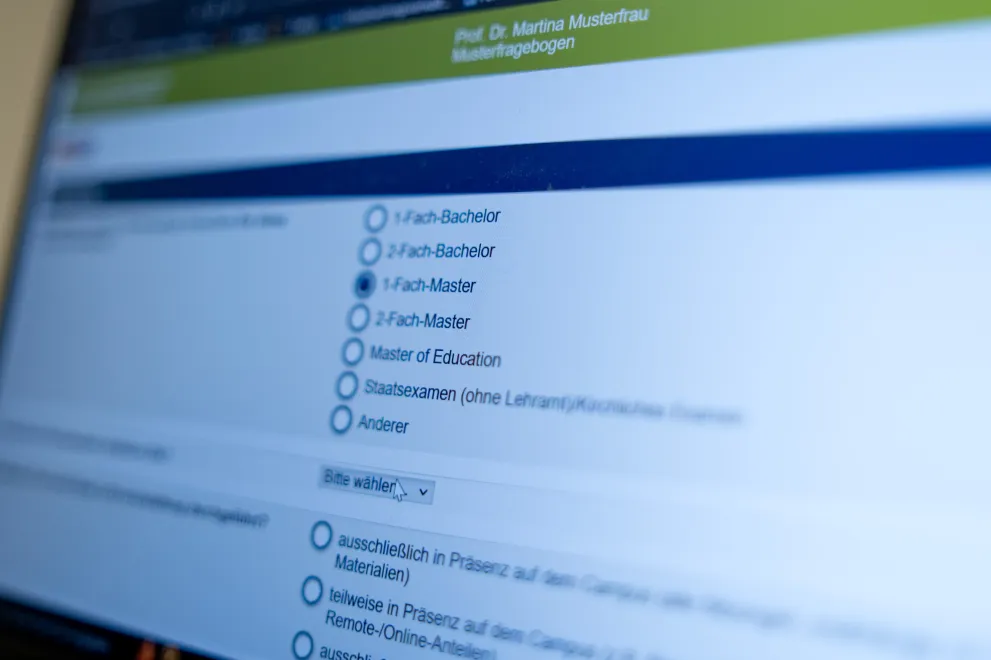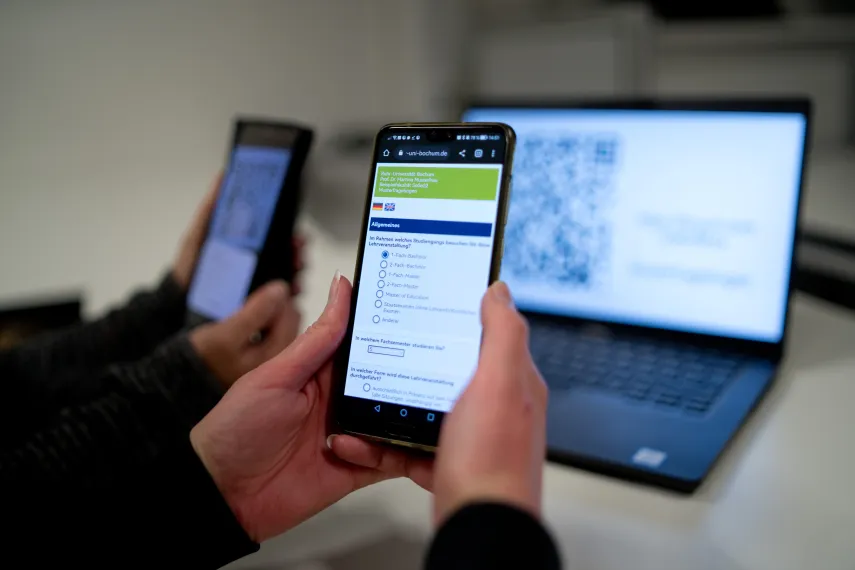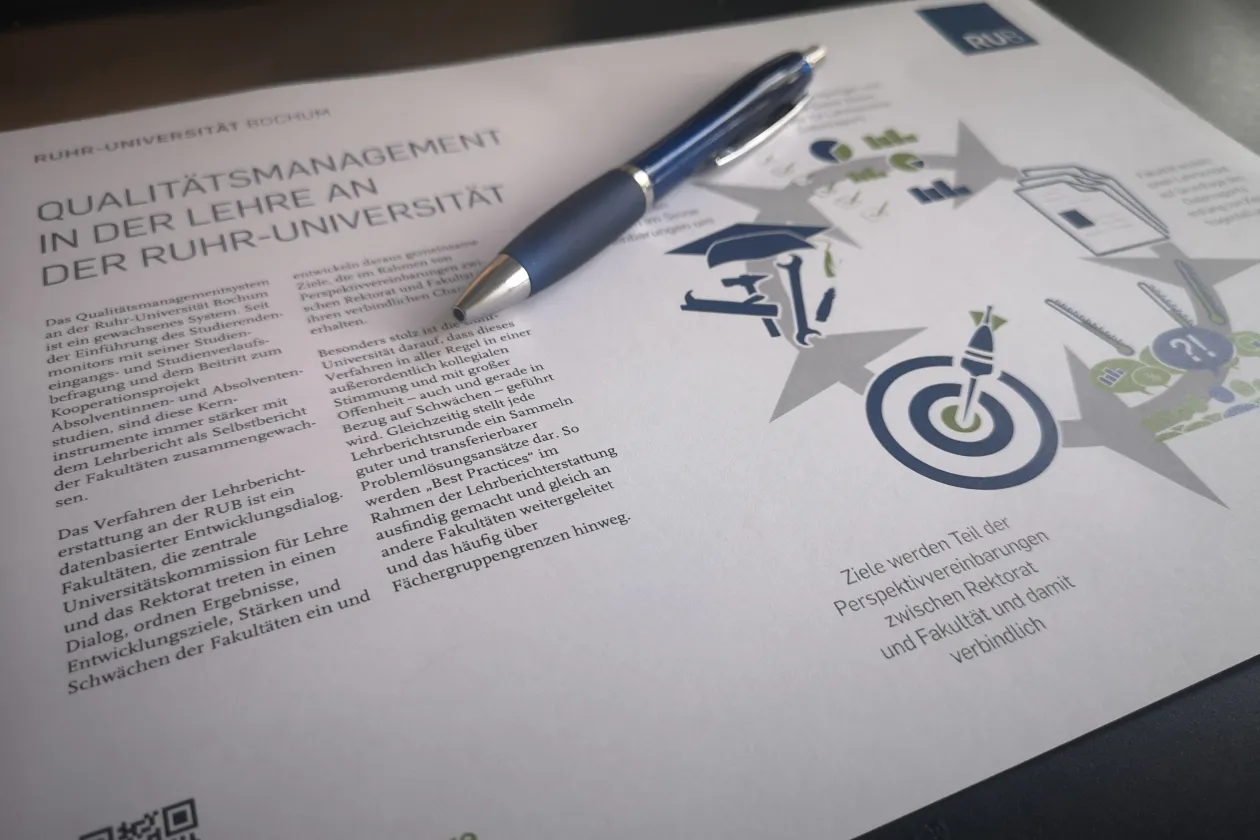
What you need to do:
- Submit an application
- Wait for e-mail from Dec. 1
- Invite students
- Retrieve results
- Discuss results
Important!
If you discover during the semester that you have not yet submitted an application to use evasys, please complete the application and have it signed by your faculty and send it to: evasys@ruhr-uni-bochum.de and complete the late registration form .






